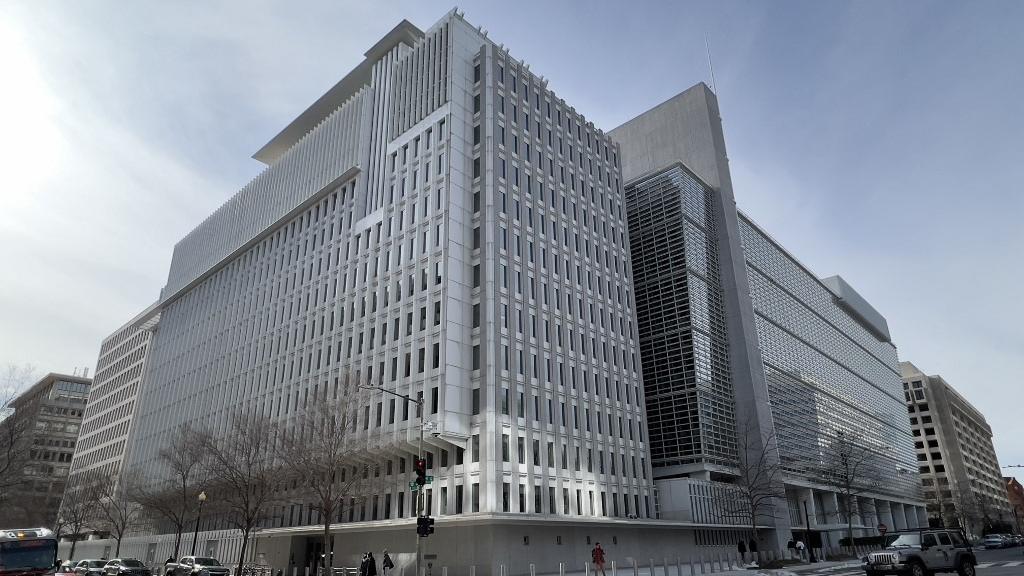 President of World Bank Group, Ajay Banga, speaks during the side event Financial Innovation for Climate and Development during the G20 finance ministers meeting in Sao Paulo, Brazil, on Feb 28, 2024. (PHOTO / AFP)
President of World Bank Group, Ajay Banga, speaks during the side event Financial Innovation for Climate and Development during the G20 finance ministers meeting in Sao Paulo, Brazil, on Feb 28, 2024. (PHOTO / AFP)
WASHINGTON - The World Bank Group said on Wednesday it would consolidate its loan and investment guarantee structure as part of its goal to triple its annual guarantees to $20 billion by 2030 to boost private renewable energy investments in developing countries.
The reforms, announced on the sidelines of a G20 finance leaders meeting in Sao Paulo, Brazil, would move all of the guarantee experts from across the World Bank's business units into a single platform.
The bank said the changes, to start on July 1, would provide "a seamless experience for clients and easier access to the full suite of guarantees" and speed approvals.
World Bank President Ajay Banga said the $20 billion annual guarantee target over the next five to six years was a somewhat arbitrary figure meant to show ambition to expand these products.
The changes announced on Wednesday are the first tangible results from a group of private-sector investment executives assembled last year by World Bank President Ajay Banga, dubbed the Private Sector Investment Lab, to develop ideas to draw more private capital to clean energy and other investments in developing countries
"Our ambition is to go in quantum number from where we are today," Banga told a news briefing, adding that capital adequacy would need to be reviewed.
"So don't think of this as a cap that is imposed by the bank," Banga said. "If you want to get to three times where we are today, the quicker we get there, the better we do it, the happier we'll be, and the more ambitious we'll be about the next step."
ALSO READ: World Bank chief sees $100b+ lending boost from capital moves
The World Bank Group currently provides guarantees on about $6.8 billion worth of loans and investment contracts annually across its business units, including the Multilateral Investment Guarantee Agency (MIGA), the private-sector International Finance Corp and its main International Bank for Reconstruction and Development lending arm.
The guarantees include credit enhancements, insurance for political risks, commercial risks such as breach of contract, currency restrictions and other impediments to private investment in developing countries. Expanding these guarantees is a key component of the bank's efforts to stretch its balance sheet and boost lending by more than $150 billion over 10 years to help fight climate change and other global crises.
The changes announced on Wednesday are the first tangible results from a group of private-sector investment executives assembled last year by World Bank President Ajay Banga, dubbed the Private Sector Investment Lab, to develop ideas to draw more private capital to clean energy and other investments in developing countries.
 This file photo dated Jan 19, 2022 shows the headquarters of the World Bank in Washington DC. (PHOTO / AFP)
This file photo dated Jan 19, 2022 shows the headquarters of the World Bank in Washington DC. (PHOTO / AFP)
The World Bank said the plan called for simplifying guarantee products into a single comprehensive menu that would allow clients to easily identify and select the instrument best suiting their needs. A new common approach would standardize guarantee reviews, replacing a patchwork of different processes, rules and standards that now "holds back their potential and impedes client access", the bank said.
Mark Carney, UN climate envoy and asset management executive who chairs the Private Sector Investment Lab, said he expected clean energy projects to take the "lion's share" of the World Bank guarantees, but heavy industry de-carbonization projects also could become customers in emerging market and developing countries.
READ MORE: WB chief: COP28 allows capital to be utilized for emerging markets
"Political risk is often a deal breaker for energy infrastructure investments, Carney said. "And the private sector just can't manage that on its own."


